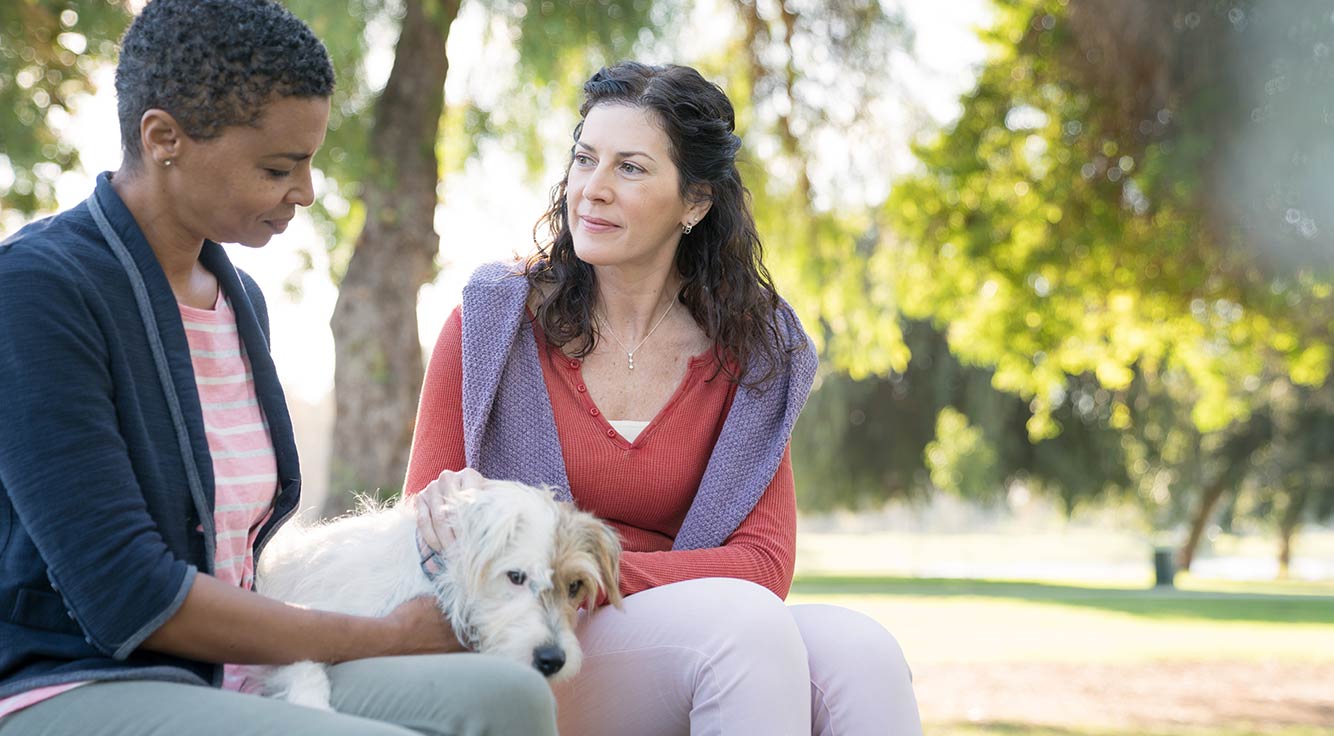
How to help a loved one with depression
Depression is more common than you may think. In fact, according to the World Health Organization, 300 million people worldwide experience depression.1 It’s a mental health condition that can affect anyone — including our loved ones — for a variety of reasons.
So, if you think someone in your life might be living with depression, it’s important to offer your support, hope, and encouragement. You may not be able to make their depression go away, but you can let them know you care and want to help them get better.
And remember, there is no right or wrong way to be supportive. Each relationship is different — and so is everyone’s experience with depression. But there are several things you can do when trying to help someone you care about.
Understand that depression isn’t the same for everyone
There are many different types of depression, including:
- Major depressive disorder
- Bipolar disorder
- Perinatal and postpartum depression
- Premenstrual dysphoric disorder (PMDD)
- Seasonal affective disorder (SAD)
- Situational depression
Each of these types of depression can affect a person differently and it can happen at different stages in their life.
For example, if your best friend just had a baby and doesn’t quite seem like herself, she may be experiencing postpartum depression. Or if a relative went through a traumatic event like a divorce or death, then they might be experiencing situational depression.
Recognize the warning signs
It can be difficult to know when someone is depressed. Some people try to hide their symptoms — even with the people they’re closest to. But it’s important to look for warning signs so you can speak up if you think something’s wrong.
Symptoms of depression can include:
- Expressing a hopeless or negative outlook on life
- Showing loss of interest in things they used to enjoy
- Sleeping or eating too little or too much
- Feelings of shame, guilt, or worthlessness
- Talking about death or suicide2
Talk about it
If you notice someone is showing depression warning signs, talk to them right away. Even if it’s just a gut feeling, or a small sign that something isn’t right, it’s important to start the conversation.
We can support the people in our lives by having the courage to speak up and encourage them to find support and get better. Not sure what to say to someone who might be depressed? Visit Find Your Words for guidance.
Help them find the right resources
The best thing you can do for someone who’s depressed is help them find support. You can start by helping them understand how depression is treated, and encourage them to talk with their doctor about their options.
Check in
Even if a friend or family member is getting treatment, it’s still a good idea to check in. Call them to see how they’re doing, spend time together, or offer to help run errands or pitch in with everyday tasks. Even if it’s a small gesture, it’s important to show them you care.
While you can’t “fix” someone’s depression, you can offer support, encouragement, and hope. Remember that the most important thing you can do is be there, let them know they’re loved, and encourage them to take action.
1Depression, World Health Organization, March 22, 2018, who.int/news-room/fact-sheets/detail/depression
2If you believe someone might be considering suicide, don’t wait until it’s too late — talk to them about it now. You can help them find support and do your best to keep them safe. And if you’re ever unsure how to stop someone from harming themselves, call the National Suicide Prevention Lifeline or dial 911.





